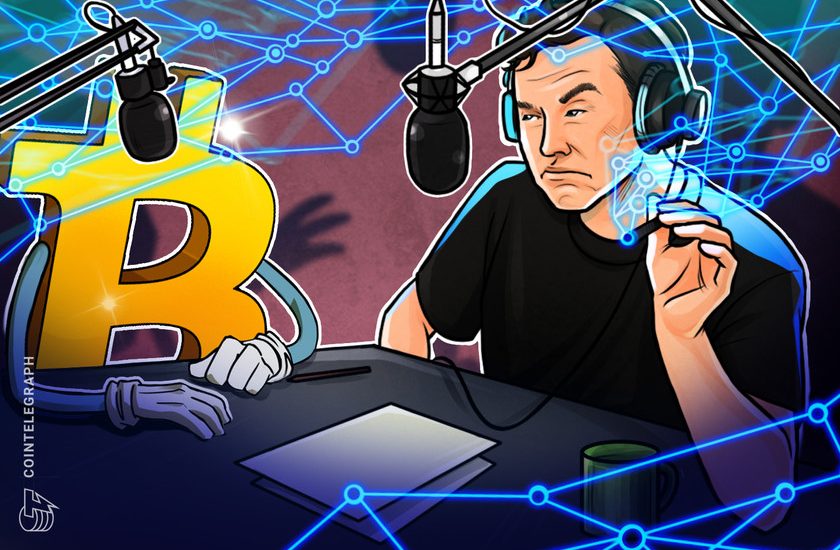- May 13, 2021
- Posted by: admin
- Category: BitCoin, Blockchain, Cryptocurrency, Investments


Tempers are running hot in the latest round of Bitcoin FUD, but a longer-term perspective reveals “business as usual” for BTC.
Bitcoin (BTC) dived 17% when Tesla CEO Elon Musk criticized its energy consumption — but it’s already bouncing back.
On May 13, fresh from its dip to $45,60, BTC/USD is trading above $51,000, having regained over half its lost ground.
With the drama still spreading, Cointelegraph considers why, on a fundamental level, Bitcoin is ultimately resilient to the actions of a single user — no matter how influential he or she is.
Proof-of-Work doesn’t care
Bitcoin’s Proof-of-Work (PoW) algorithm rewards both miners and investors over time because their years of work makes the network stronger.
The longer Bitcoin continues, the less likely it is to succumb to attack or see its participants leave the network for a different cryptocurrency.
This is precisely why Bitcoin continues to be the cryptocurrency of choice with competition — as many argue, no altcoin can “do Bitcoin” like Bitcoin.
When it comes to Musk, however, proof-of-work is signifcant for another reason. Just because one prominent investor changes his mind on Bitcoin’s merits and the price drops, miners have no added incentive to quit the network or cash out.
This aspect of “network effect” means that Musk ultimately provides Bitcoin with good, rather than bad publicity — as even price shows, his words and actions do not change what Bitcoin is or what it is capable of.
“Why is proof-of-work crucial for bitcoin? Because a valid hash (PoW) is how P2P nodes know that a block is valid, without needing a server or trusted third party,” PlanB, creator of the stock-to-flow family of Bitcoin price models, commented on the phenomenon.

Price trends don’t care
Despite its abrupt dive after Musk’s words, Bitcoin’s recent price action speaks more to its resilience to criticism than its susceptibility.
In the event, BTC/USD spent a mere two hours in decline before reversing and holding higher levels. Not just that, but the dip also fits with regular price behavior seen this year and did not even violate any longer-term price trends.
A particularly important level which has characterized the 2020-2021 bull run has been the 21-week exponential moving average (EMA). Analysts have said that this level would dictate the price floor during dips — it even held during the previous bull run peak in 2017.
This time, Musk likewise failed to topple the indicator, and the brief wick to $45,650 was extinguished when it met the 21EMA on the way down.

Bitcoin energy “consumption” doesn’t care
As ever with Bitcoin, it pays to zoom out.
Once the dust settles on Musk’s individual energy criticism, the wider “debate” on how eco-friendly Bitcoin is will continue in his wake. Most of the common accusations, however, have been long debunked as short sighted and lacking evidence.
Just last week, Michael Saylor, CEO of major Bitcoin hodler MicroStrategy, gave a public interview in which he reinforced the lack of merit inhererent in claims that Bitcoin is “bad” for the environment.
Responding to Musk, he called Tesla’s decision to stop accepting Bitcoin for payments “ironic.”
“Ironic because no incremental energy is used in a bitcoin transaction,” he wrote on Twitter.
“The energy is used to secure the crypto-asset network, and the net impact on fossil fuel consumption over time will be negative, all things considered.”
Expanding one’s time horizon is thus essential to understanding why Bitcoin is worthwhile. As Saifedean Ammous, author of popular book, “The Bitcoin Standard,” often mentions, having a “low time preference” allows a BTC investor to understand that rejecting sound money for reasons such as the environment ends in more energy wasted on unsound alternatives.
This time, Ammous did not mince his words.
“Unless you’ve also switched your rockets and battery manufacturing to ‘more sustainable energy’ you’re going to look like a clueless big hypocrite here,” he tweeted, alluding to Musk’s other company, SpaceX.
“The world needs sound money far more than it needs your rockets & government-subsidized electric cars.”
